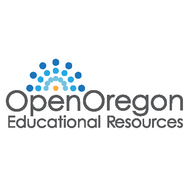
(View Complete Item Description)
We created this site to share the lesson plans and other materials that we use in this Listening/Speaking Level F class with other ESL teachers -- click around and use what works for you! This is a 10-week course at LCC, but you can pick and choose from the 8 chapters for a shorter or longer term. The chapters can be covered in any order.
Lane Community College's Intensive English Language Program offers 6 levels (A=beginner, F=college transition). This site was designed for Listening/Speaking Level F, which is a class that teaches listening and note-taking strategies focused especially on lecture listening, as well as presentation, pronunciation, conversation, and academic discussion skills.
LCC ESL Students in Level F take three separate intensive classes (Writing, Listening/Speaking, and Reading for a total of 20 in-class contact hours per week). Prior to the re-imagining of this class and the creation of this site, each Level F class had a different textbook with different thematic progressions. Students experienced cognitive overload with the demand to learn the vocabulary, concepts, and skills of the three separate classes. In addition, students in our department are often from marginalized backgrounds and can find it financially difficult to purchase the three separate textbooks.
In order to lessen students' financial and cognitive burdens and create more connections between the three classes, we used the topics from the Reading textbook (Academic Encounters Level 4: Reading and Writing, 2nd edition, Cambridge 2014) to find freely-available authentic videos or recorded audio for the Listening/Speaking class.
Over the past year, students have expressed appreciation for the reduced cost of taking the course. In addition, they have shown increased interest and engagement in the course due to the authentic, real-life materials and complementary nature of the three Level F classes.
Material Type:
Activity/Lab,
Homework/Assignment,
Lesson Plan,
Teaching/Learning Strategy
Authors:
Annick Todd,
Colleen Shields,
Dave Schenderlein,
Jen Sacklin,
Maggie Mitteis




















